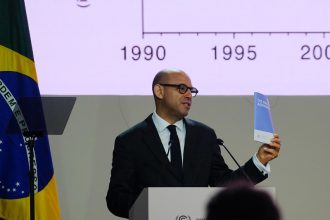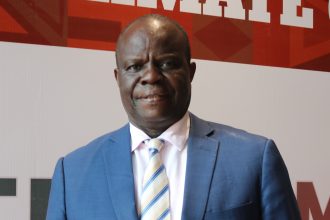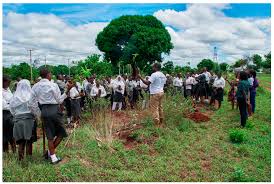By Henry Neondo
Ahead of the Second Africa Climate Summit set for Ethiopia’s capital city of Addis Ababa, Youth and children in Kenya are calling for stronger inclusion in the country’s climate policy framework, highlighting their unique contributions, challenges, and resilience in the face of the climate crisis.
Speaking at a recent convening that brought together researchers, child advocates, and policymakers, participants stressed the urgency of integrating young voices into decision-making to ensure sustainable and just climate solutions.
Presenting findings from a study on leadership and social justice frameworks in youth-led climate action, researcher Henry Okoto emphasized that Kenya’s youth are increasingly mobilizing through digital platforms such as WhatsApp and TikTok. “These spaces allow young people to overcome resource constraints and make their voices heard,” Okoto said. The study, grounded in social movement and framing theories, showed how climate change can be positioned not only as an environmental issue but also as a social justice concern, linked to food insecurity, gender equity, education, and mental health.
The research used a mixed-method approach, combining systematic literature reviews, structured interviews with community-based organizations (CBOs), and case studies of grassroots innovations like the national drama and film festivals. Challenges identified included insufficient funding, lack of capacity support, and the mental health burden on young activists. The team’s recommendations called for:
- Integrating youth perspectives into national climate policies.
- Establishing funding streams directly accessible to youth-led initiatives.
- Providing training in digital skills and project management.
- Encouraging intergenerational collaboration.
- Safeguarding mental health through supportive structures.
Complementing the youth-focused discussions, the Children’s Climate Advocacy Panel underscored the importance of recognizing children not just as victims of climate change, but as active contributors to solutions. Panelists cited the UN Convention on the Rights of the Child (UNCRC) as a legal framework supporting meaningful participation of children in climate governance.
“Children have a right to be part of the decisions that affect their lives,” one panelist noted. Yet, they pointed to persistent barriers such as limited financing and lack of dedicated platforms for children’s advocacy. Innovative approaches, including media engagement and community-based initiatives, were highlighted as ways to amplify children’s voices.
Both the study and the panel converged on one message: Kenya’s climate action will be stronger and more just if young people and children are meaningfully involved in shaping policies and programs.
To ensure that recommendations reach decision-makers, experts urged the use of digital platforms, visual policy briefs, and structured dialogues with government officials. By combining evidence-based recommendations with grassroots success stories, youth and children hope to influence Kenya’s climate framework in ways that protect vulnerable populations and build resilience for future generations.




